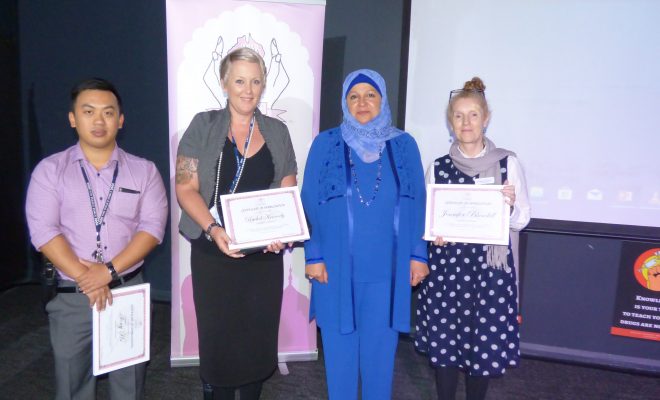
2018 MWWA Drug Seminar
Liverpool Police & the Muslim Women’s Welfare of Australia (MWWA) connect in
‘Keeping Youth Drug Free’
Every year, the Muslim Women’s Welfare of Australia (MWWA) delves into ways of helping women from all walks of life, live a more informed life. This year, MWWA alongside Liverpool Council, decided it was time to bring families together to discuss the serious issue of drug abuse by today’s youth.
A ‘Keeping Youth Drug Free’ seminar was held by MWWA followed by a free lunch, aimed at providing parents, students, friends, families and the community an open and safe setting to talk about the issue of drug abuse.
Sponsored by Liverpool Council, the seminar provided attendees with important information on how to identify and detect drug use by their own children and by other children, how to treat the problem, but most importantly how to prevent it in the first place.
The Seminar was opened with a speech by Mrs Faten El Dana OAM, the President of MWWA and the founder of the Drugs programs developed by MWWA, and featured expert guest speakers from Liverpool Police and health, who have had extensive experience with youth and drug abuse. They gave attendees the opportunity to gain insight through their experiences and to directly get answers of some of their relevant questions.
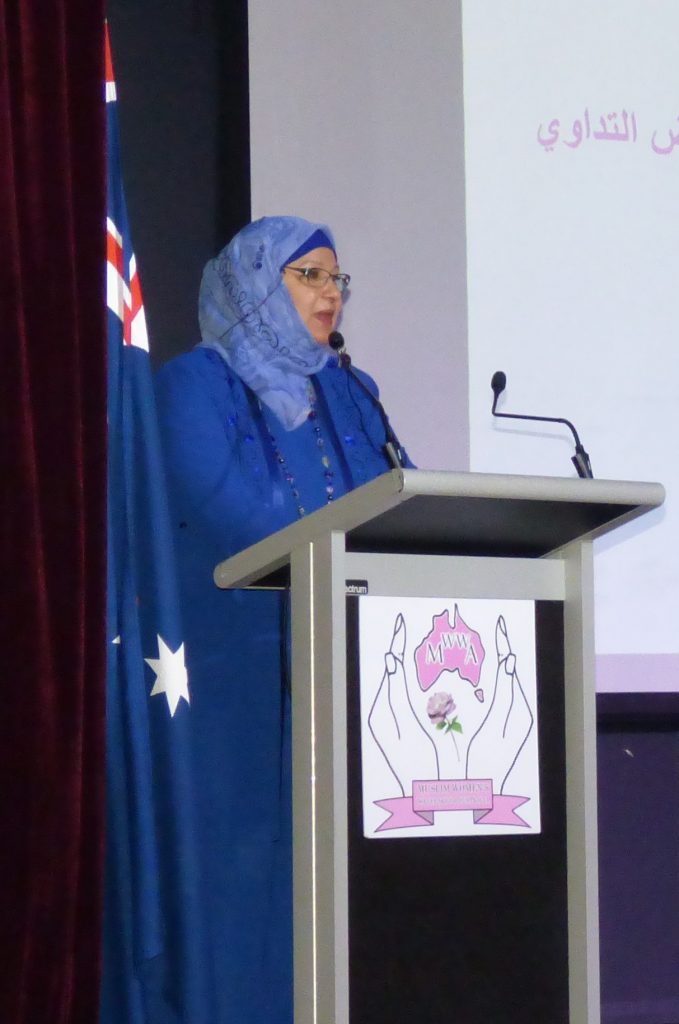
Mrs El Dana revealed some shocking statistics about the number of youth who have fallen into the trap of using drugs and suffered the harmful consequences.
She also spoke about the Islamic judgement pertaining to using drugs and that using any type of intoxicating drugs which affects the mind or harms the body, is forbidden in Islam.
She highlighted that following the rules of Islam is a gateway to success, as it protects one from what is harmful and supports self-discipline. She said: “Drug use is Islamically forbidden, evidence is available in the Qur’an and in the prophetic saying – the prophet forbade anything that causes harm to one’s body”.
Mrs El Dana stressed the importance of caring for our children by always being wary of where they are at all times and of who their friends are. “This is extremely important nowadays” she said: “if your son returns home at 3am with red sunken eyes, do not ignore these signs, ask them about their whereabouts”. She then concluded her speech by offering parents ideas on how to best approach drug issues with their children using the results of a latest survey as a strong evidence that “…children are willing to talk to you about drugs. It is vital that they do not hear the wrong messages from others first”.
All in all, Mrs El Dana sent a strict and strong message to attendees about seeking drug treatment as it does work and not to avoid the situation as it will escalate.
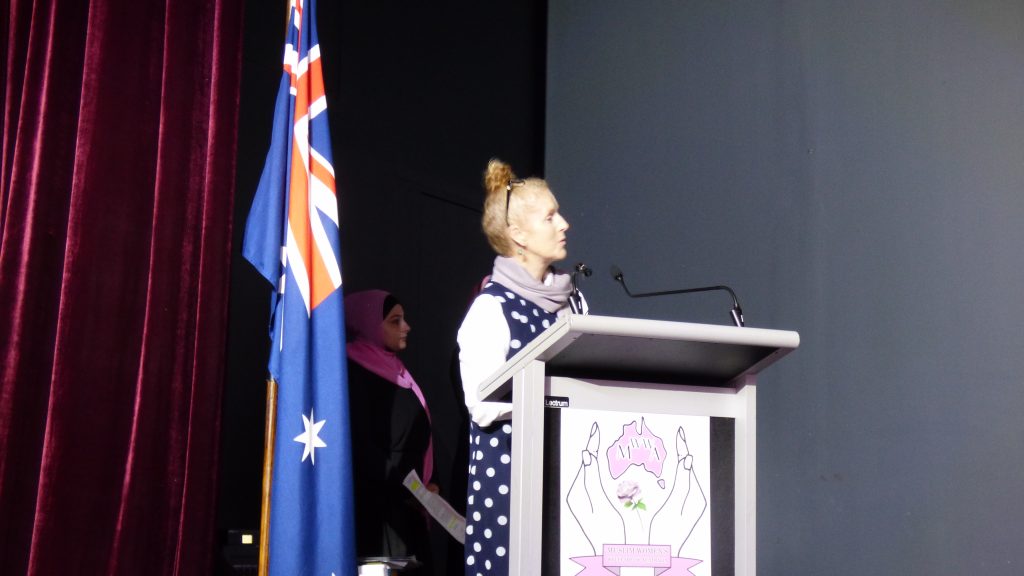
Another beneficial insight came from Mrs Jennifer Blundell, the Training and Development Officer from the Alcohol and Drug Service Contact Centre at St Vincent’s Hospital who shed a light, through her years of experience in counselling and Mental Health training, on the value of treating drug abuse right from the start. She indicated the harmful effects using drugs has on individuals by comparing the different type of drugs and their negative consequences. “These drugs can incur memory loss, learning difficulties, mood swings, regular cold or flues, reduced immune systems, reduced sex drive or even mood swings”. Mrs Blundell gave the attendees direct hotlines and the relevant websites to get further details if needed. Her contribution was translated by Mrs El Dana into Arabic to meet the needs of most attendees.
Afterwards a real-life video presentation was shown to the audience to reflect a realistic understanding of how a drug addiction can take a strong hold on the life of its user; emotionally, psychologically and financially and on their family life.
This was followed by a presentation from the Liverpool Police Senior Constable and Crime Prevention Officer, Mr Tony Ha and Senior Constable and Liverpool Youth Liaison Officer, Mrs Rachel Kennedy. They both gave a much-needed information about the little details that many parents and students usually are not aware of.
Mrs Kennedy started by showing pictures of different types of drugs to the audience many of them were unable to identify. She then went ahead and described names, attributes, uses and effects of each individual drug that she presented. She highlighted the importance of knowing how to distinguish between these types of drugs because parents may find these items with their children and disregard them due to the way they are manufactured.
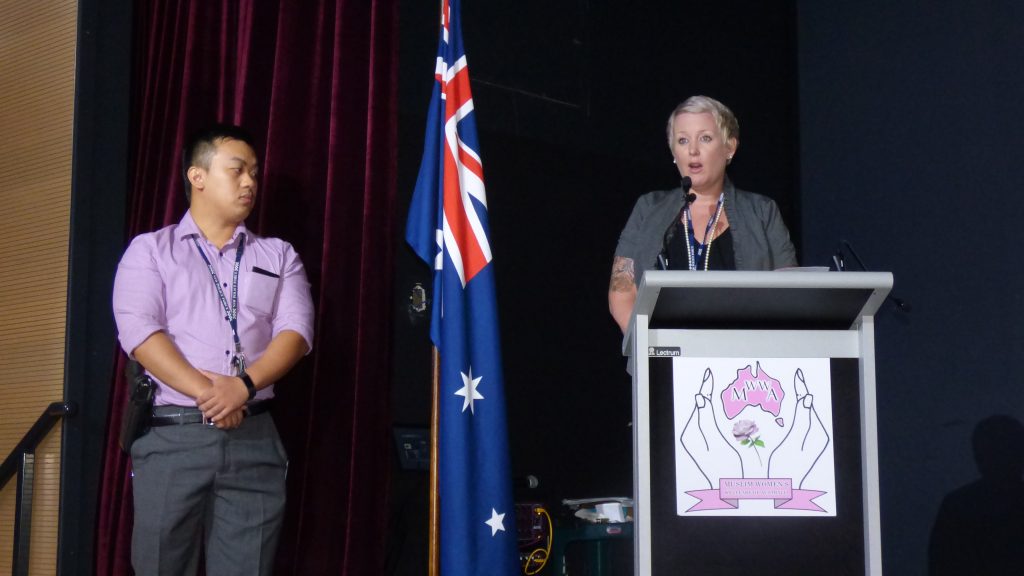
In fact, Mrs Kennedy emphasised the need to monitor one’s children because some youth may find ways to use everyday home products as chemically based drugs. “These are just cleaning products that you may have at home, but some young people use these by sniffing them and as a way of becoming sleepy”.
Whereas Mr Ha began by giving details about the criminal side of drug offences that youth who are caught with, would be convicted with, depending on the weight and type of drugs found in their possession.
Mr Ha also warned that even a person as young as “ten years old” can be arrested if they are caught with illegal illicit drugs. He also cautioned against ‘Drink Spiking’ among students especially towards female ones during university and other school functions, and spiking drinks of young ones in a social gathering.
He stressed the importance of covering one’s food and drinks as drugs may very easily be added into someone’s food to cause them to become numb, or sleepy. “Never leave your drink and walk away” he said, “If your drink tastes strange, don’t continue to drink it – dispose of it immediately”.
Both Liverpool police representatives encouraged parents and children to come forward or not to be afraid of anonymously report anyone who may be doing drugs. They also reassured the audience that they can get assistance from the police at any time they need police help. They then invited them to voice their concerns and to direct their questions to the panel of experts. The audience questions ranged from details about ‘Drink Spiking’, ‘Steroids’, ‘ways of starting conversation with their children’ and ‘how they can report suspected drug trading in their area’. The audience welcomed the useful information they received.

This was evident in their positive feedback: “We would love to have more seminars like this to truly understand how we can go about dealing with drug use” one attendee expressed.
The event ended with an emotionally driven Islamic chant which reminded people that “Life is so precious” to “be thankful for your health” and telling youth explicitly “Don’t Do Drugs!”. The entire seminar was broadcasted on a local radio station to give people who were unable to attend an opportunity to hear the beneficial information that was offered.
At the end of the seminar, MWWA invited everyone to enjoy a delicious Mediterranean inspired lunch during which attendees were able to personally meet the experts, discuss the given information, and gain further connections with MWWA associates.
Following the success of this important seminar, and upon the request of parents, MWWA is planning on holding more seminars concerning the issue of drugs and other important social issues to bring to the attention of the community, by collaborating with the council, the police, and other relevant agencies and organisations.
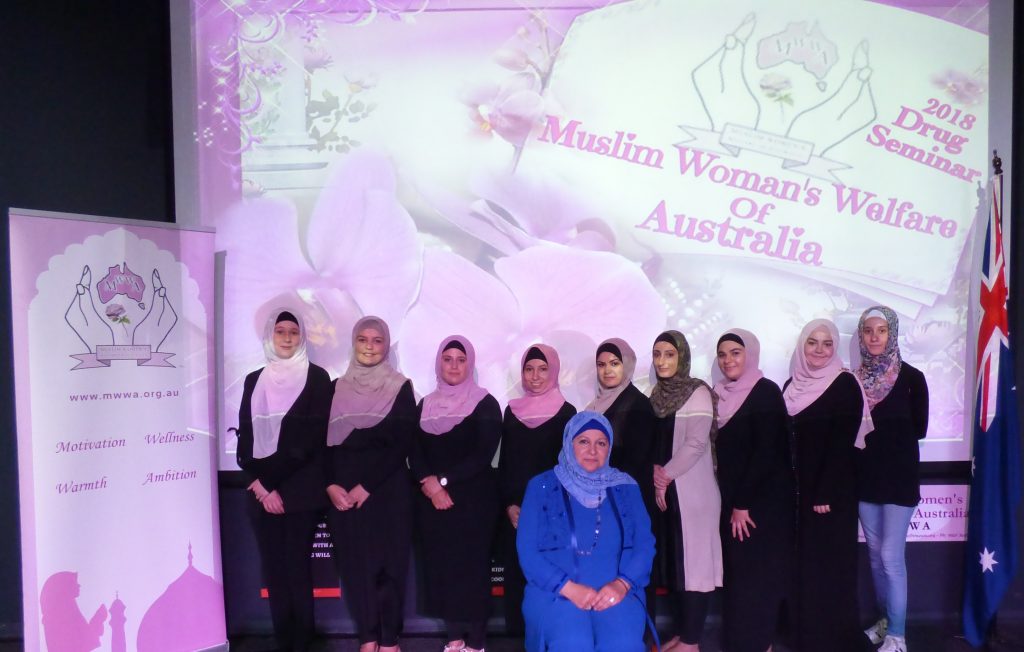

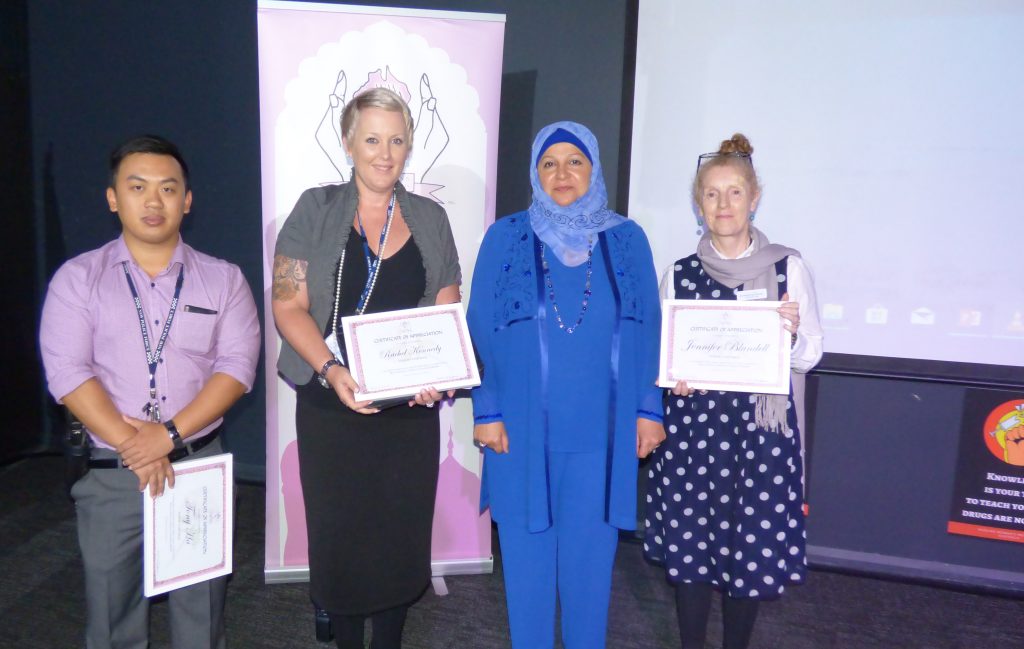
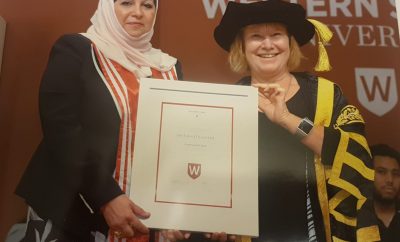
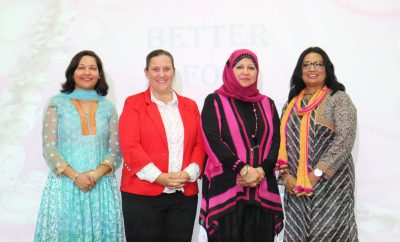



You must be logged in to post a comment Login